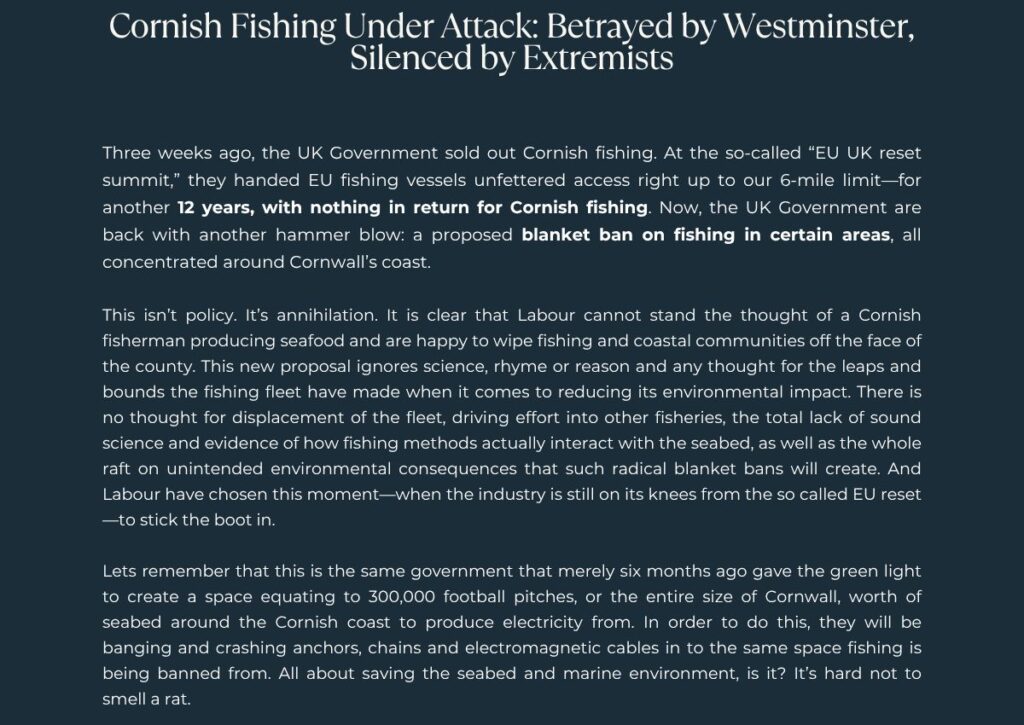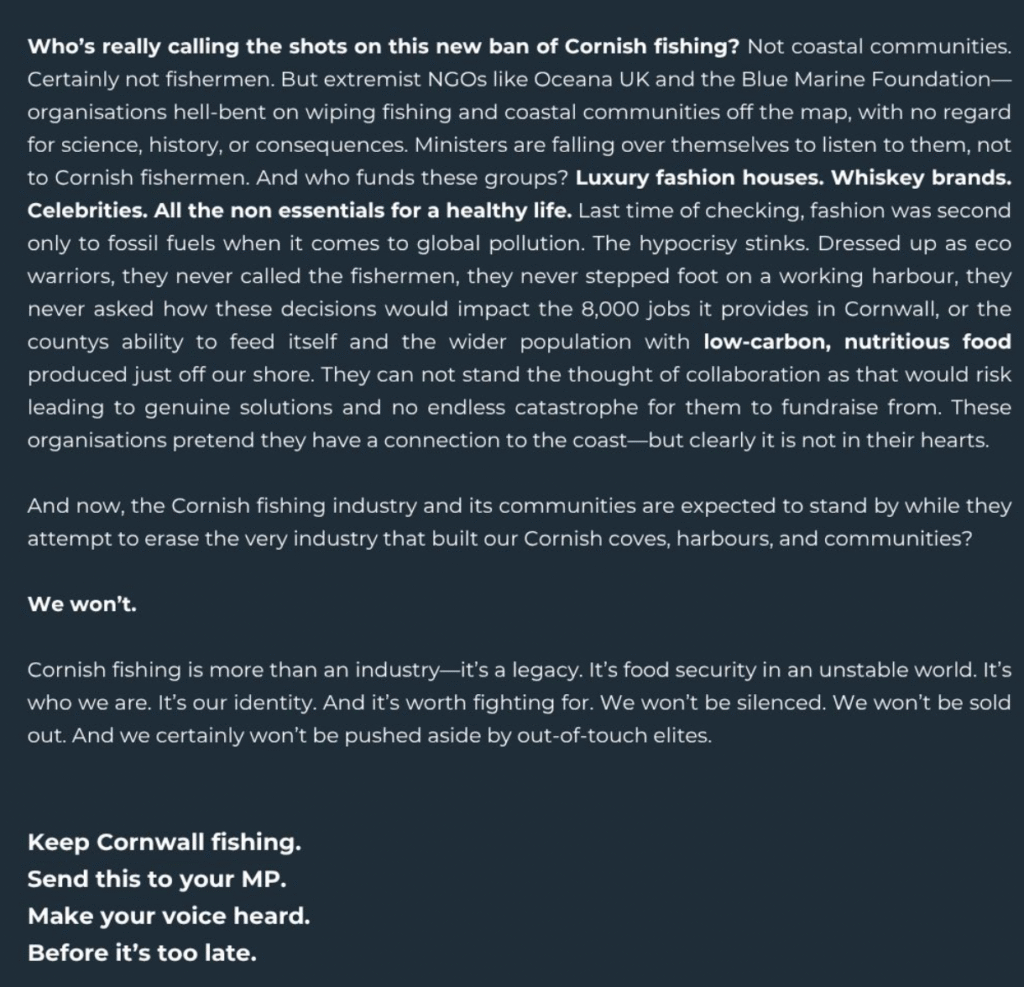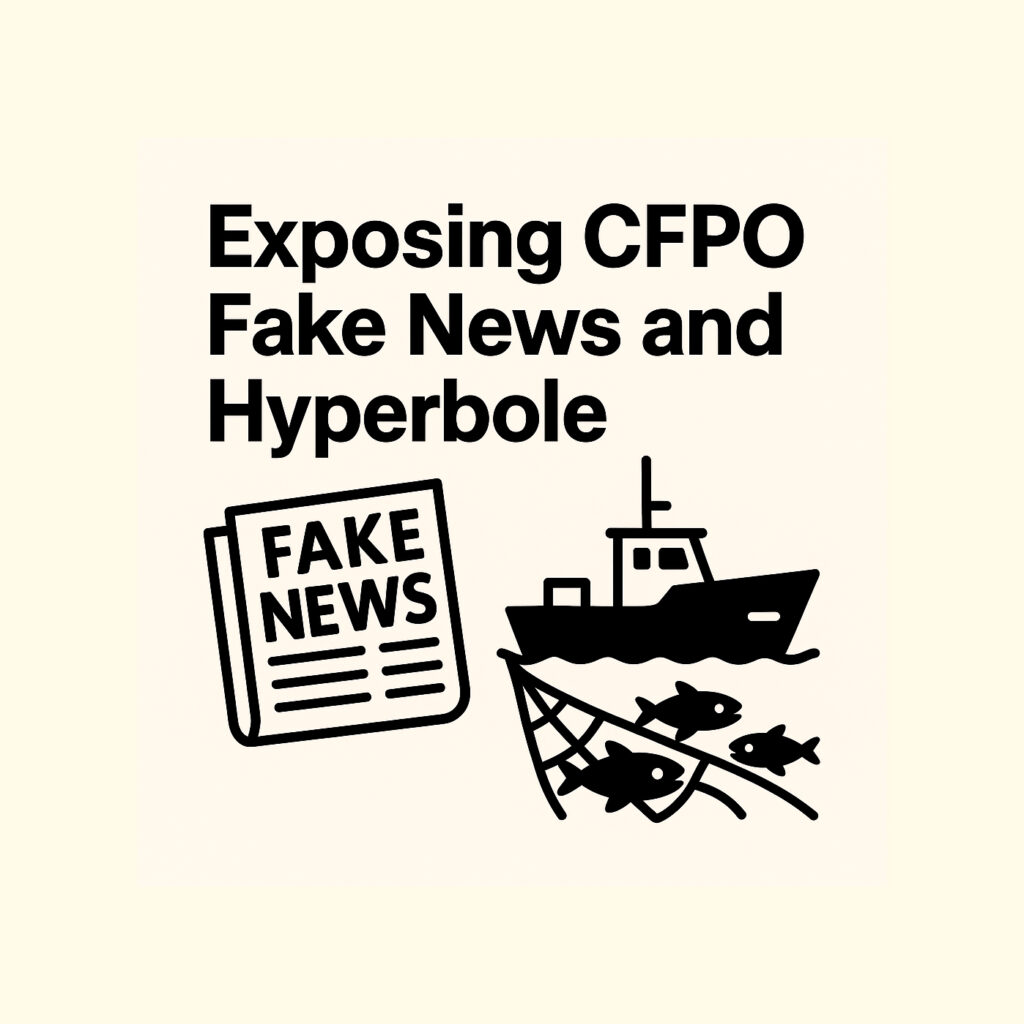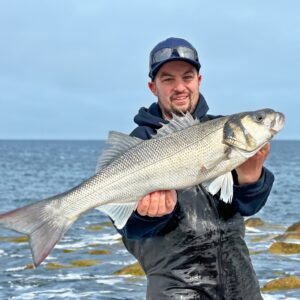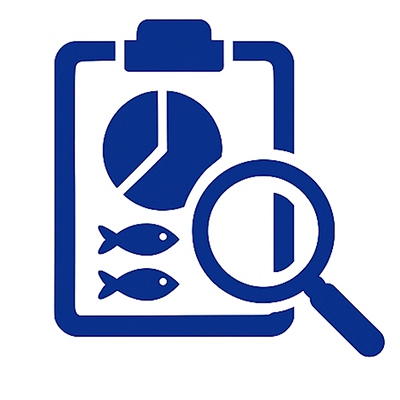The Cornish Fish Producers Organisation (CFPO) are back doing what they do best: deploying slick communications to present Cornish fishers as perennial victims, while portraying every attempt to improve fisheries management as an existential threat to their way of life. It’s a tactic that has long won them sympathy from MPs, but it’s wearing thin under scrutiny.
Let’s be clear from the outset: it’s been a long time since commercial fisheries have meaningfully supported local communities—Cornish or otherwise. Yes, some small-scale operators continue to make a living from the sea, but the broader industry relies heavily on importing labour and exporting the product. If export demand shrinks and imported labour reduces, maybe then the U10 and non-sector fleets that genuinely support local livelihoods would see better returns and better prices. But I digress.
Let’s take a closer look at the CFPO’s latest outburst. Does it hold water?
“Three weeks ago, the UK Government sold out Cornish fishing”
On this point, we can largely agree. The CFPO were right to call for a 12-mile exclusive zone for UK vessels—something sea angling groups were also prepared to support. But this would have been better pursued through joint advocacy. Unfortunately, the CFPO’s historic refusal to recognise or work with the recreational angling sector on shared interests weakened the case from the outset. And now, having failed to defend that cause, they pivot to what they call a “hammer blow”:
“A proposed blanket ban on fishing in certain areas, all concentrated around Cornwall’s coast”
This is where their argument collapses. The government’s proposal targets bottom trawling and certain other gears in just over 40 Marine Protected Areas (MPAs). This is not a “blanket ban on fishing” by any definition—it’s a targeted restriction on specific, high-impact gear types. Other forms of fishing, including line, pot, and dive fisheries, will still be allowed in most cases.
As for the claim that these areas are “all concentrated around Cornwall’s coast”: it’s false. The consultation areas include 12 in the North Sea, 7 in the Eastern Channel, 3 in the Irish Sea, and 20 in the Western Channel and South West—including parts of Dorset. Fewer than half of the sites are in areas Cornish vessels fish. So is this hyperbole? Or simply fake news?
Let’s reflect also on where these bans are being proposed: Marine Protected Areas.
Many assume MPAs already offer meaningful protection, but the reality is far from it. Most are “protected” in name only, with damaging activities like bottom trawling still allowed. This consultation is a long-overdue attempt to align practice with purpose—giving marine ecosystems the sanctuary they’re supposed to have.
Healthier fish stocks benefit everyone, including commercial fishers. This isn’t an attack—it’s a long-term investment in sustainability.
“This isn’t policy. It’s annihilation.”
It is policy. It was included in Labour’s election messaging and is now being actioned. If protecting just 3.38% of UK waters from bottom trawling constitutes “annihilation,” then perhaps it’s time to ask what truly annihilated our fish stocks in the first place.
“There is no thought for displacement of the fleet.”
This is a fair point, and one we take seriously. That’s why we have public consultations—to address unintended consequences and develop smarter solutions.
We must avoid displacing effort from robust habitats to fragile ones. We must also guard against trawl-free zones becoming static gear minefields, where over-soaking and gear congestion create new environmental problems. The consultation touches on this but must go further. If these areas are to be truly sustainable, they need gear-specific planning, not just gear bans.
“Total lack of sound science.”
The burden of proof lies with those wishing to continue high-impact activity. That’s what the precautionary principle means. If a developer wants to build on sensitive land, they must prove no harm. Fishing should be no different. Saying “there’s no science proving this is damaging” is not a defence—it’s a call to do the science before continuing.
“Let’s remember that…gave the green light…size of Cornwall…worth of seabed…to produce electricity from”
This is a classic case of “whataboutery.” Yes, the seabed is used for multiple purposes—but that doesn’t mean all uses are equal. Energy security and climate mitigation are essential to national infrastructure. That doesn’t excuse damage, but it puts the CFPO’s outrage in perspective—especially from an industry that relies on energy-intensive processes like freezing, processing and transporting exports.
If they have serious concerns about energy infrastructure, let’s hear specific proposals. Wind? Nuclear? With its own risks to marine life? Or are we just lashing out because someone else is using “our” seabed?
“Who’s really calling the shots on this new ban on Cornish fishing?”
The public. That’s why it’s a public consultation. The CFPO’s implication that coastal waters belong solely to the commercial fleet is precisely the entitlement that has alienated them from many others who rely on, value, and care for the marine environment.
And let’s talk hypocrisy. When big players like Waterdance met directly with Prime Minister Rishi Sunak last year, just before policy outcomes on pollack were announced that sidelined smaller Cornish boats, did the CFPO condemn “big business influence” then? No. They applauded it.
“Luxury fashion houses. Whiskey brands. Celebrities…”
These brands support marine conservation because it aligns with public sentiment, not because they want to undermine Cornish fishing. The idea that fashion is worse than bottom trawling for the environment is a bizarre deflection. If the CFPO’s arguments are strong, they shouldn’t need strawmen.
“They cannot stand the thought of collaboration.”
Nor, it seems, can the CFPO. Sea angling groups reached out on multiple occasions to work together on shared causes—pollack management, spatial planning, the 12-mile zone. Each time, the CFPO showed no interest in joint problem-solving. The moment recreational impacts were raised, they were happy to engage; the moment bycatch or hake fisheries were mentioned, the shutters came down.
Let’s hope this marks a turning point. Let’s hope this vocal reaction signals a willingness to engage with all stakeholders—not just those who already agree with them.
We now have an 80-day consultation window. That is time to listen, learn, and lead.
The CFPO are right about one thing: we can’t rely on Defra or the MMO to lead that process. But it also can’t be led by those unwilling to work with anyone outside their own ranks. We all need to step up—fishers, anglers, conservationists, scientists, and the public—to shape a sustainable future.
The consultation is not about wiping out fishing. It’s about managing it better. Let’s make sure those with solutions—not just slogans—are the ones shaping the outcome.
Now is the time to unite—not divide. To build—not shout. And to ensure that our marine future is one that works for everyone, not just the loudest voice in the room.
The original post from the CFPO
